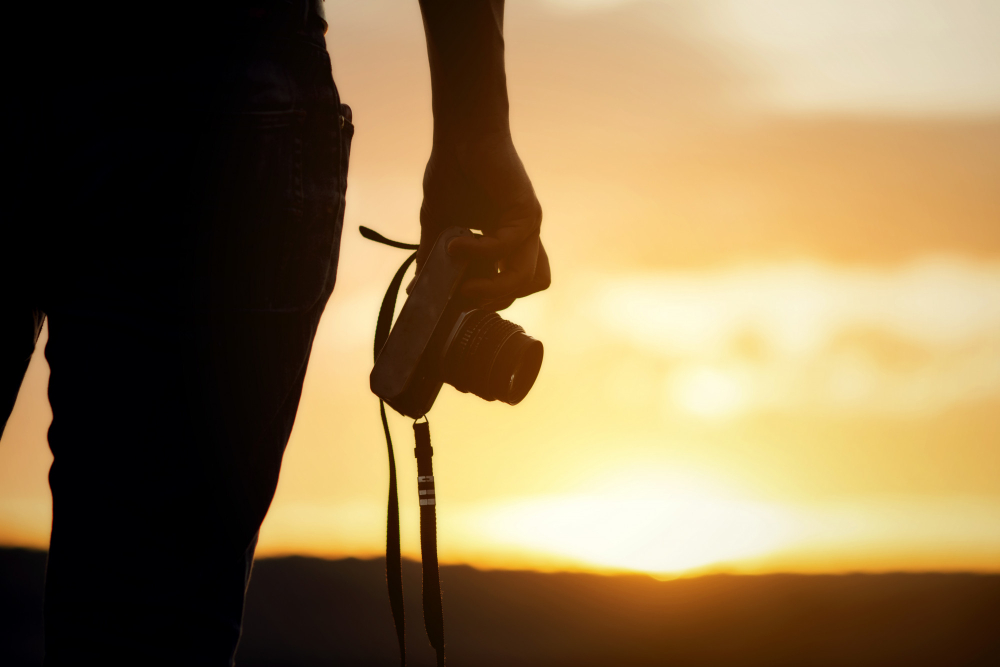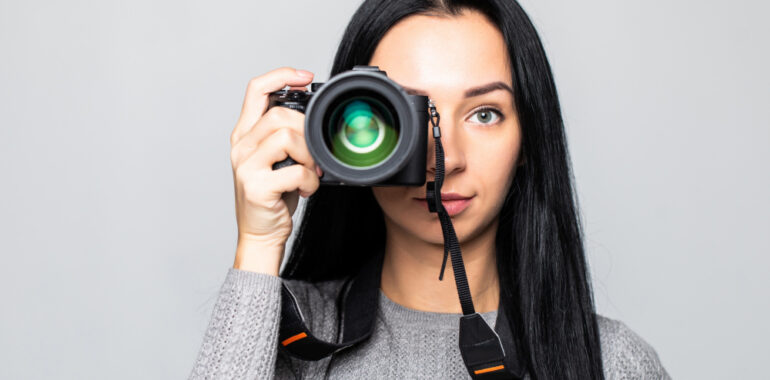Key takeaways
- The digital age has brought forward photography as a viable and serious profession.
- Over the years, the photography field has become much more advanced and competitive.
- The ideal way to kickstart your photography journey is by getting a bachelor of arts in photography degree from a reputable institute.
- The core differences between a BA and a BS degree are the flexibility, career outcomes, and program coursework.
- Our list of best bachelor of arts in photography programs includes a BA degree from the University of Illinois- Urbana Champaign, Arizona State University, and Columbia Colleges Chicago.
- College photography programs offer clubs, exhibitions, and student organizations to build industry connections.
- Studying in art and media hubs like Chicago provides exposure to creative industries.
The digital age has resurfaced photography as a serious profession for many young people around the world. Photography has undoubtedly evolved with technology, with new types of cameras and photography techniques coming into the market. So, if you find photography to be your true calling – don’t be surprised at all!
However, for a successful career in this field, you really need to make some informed decisions before stepping into the professional world. One of the best paths to choose for kick-starting your photography career is through a bachelor’s degree. Therefore, we strongly recommend opting for a bachelor of arts in photography to learn and delve into the depths of this exciting field.
In particular, a BA degree in photography is much more than just learning how to use a camera. A 4-year long undergraduate program in photography teaches you about the artistic, historical, and technical aspects of photography. Moreover, this degree allows for greater flexibility in coursework, enabling students to blend photography with other disciplines like business, media, and fine arts.
So, if you wish to cover a whole lot of ground under the mentorship of qualified faculty members, you should instantly look into the bachelor of arts in photography programs. In this guide, we break down everything you need to know about a photography degree and a complete list of amazing options. Let’s dig in!
What is a bachelor of arts in photography?

To begin with, we must first establish the core differences between a bachelor of arts and a bachelor of science. In most colleges at the undergraduate level, you will have the option to choose between a bachelor of art (BA) or a bachelor of science (BS). Therefore, it is vital that you understand the difference between the two to make an informed decision. So, here is a list of differences:
Bachelor of art
A BA degree is typically much more flexible than a BS. This field is more inclined towards liberal arts and humanities subjects, such as literature and social sciences. Moreover, in a BA photography program, you will be open to adding different courses and subjects as per your liking and making your degree much more diverse. Furthermore, in a BA photography program, the focus is more on the creativity and artistic side of the field. Lastly, this field is ideal if you wish to build a career in fields like arts, humanities, social sciences, communications, business, and education.
Bachelor of Science
On the other hand, students also have the option of choosing a bachelor of science. However, for photography majors, this may not be as popular as other majors. This is because a BS program is much more structured, and has less room for electives and diverse subjects. Moreover, it focuses on fostering skills such as analytical thinking and technical understanding more than artistic expression. It has less room for electives and is ideal for careers in STEM fields, technical careers, healthcare, and applied sciences.
What will I learn as a bachelor of arts in photography?
A BA degree in photography is typically a 4-year undergraduate program. In essence, this program is ideal for students, young or adult, who are either passionate about photography, are practicing photographers, or wish to build a career in the same.
So, for a successful career as a freelance photographer or to start your own photography business, you need to choose the appropriate education path. For that reason, a bachelor of arts in photography is an excellent choice. This is because these degrees offer you an excellent variety of learning opportunities that are applicable in the real-life world.
In most of the undergraduate photography programs, a huge focus is put on introducing students to photography through historical teachings. The coursework includes introductory courses that not only focus on modern-day photography but also how it has evolved over the years. This plays a crucial role in understanding photography as a means of art as well as in a commercial context.
So, some of the most important things you will learn in the bachelor of arts in photography are:
Camera operations and techniques
You will learn how to work with a camera, focusing on areas such as:
- Understanding camera types (DSLR, mirrorless, film, medium-format)
- Working with exposure settings (ISO, shutter speed, aperture)
- Using different lenses and their impact on composition
- Manual vs. automatic camera controls
Lighting concepts and studio photography
Lighting plays a vital role in photography, so college programs focus on lighting techniques and teachings such as:
- Understanding natural and artificial lighting techniques
- Working with flash, strobes, softboxes, and reflectors
- Indoor studio setups for portrait, product, and fashion photography
- Creative lighting effects and dramatic compositions
Image editing and post-production
Post-production plays an important role in the photography world. You will learn tools and processes such as:
- Learning different image processing and editing tools like Adobe Photoshop
- Color correction and tone adjustments
- Advanced techniques such as layering, masking, and compositing
- Digital workflow management and file organization
Darkroom techniques
Alternative photography techniques are just as important in the digital world. So, depending on college facilities and resources, you may learn:
- Black-and-white film development
- Darkroom printing and enlarging techniques
- Experimenting with alternative film processing
Artistic and composition techniques
Photography has been a popular form of artistic expression for a long time. So, you will learn aspects such as:
- Composition and storytelling
- Understanding how colors and textures influence mood
- Experimenting with angles
- Alternative techniques using mixed media
- Portfolio building and maintenance
- Developing a photography style
List of BA degree in photography

Now that you know what a bachelor of arts in photography is and whether it suits you, here we have a complete list of the top colleges that offer a relevant program. Keep in mind that choosing the best college will have an impact on your employability and allow you to enjoy greater perks in the long run. Therefore, focus on factors such as acceptance rate, faculty quality, and college faculties to make the most out of your bachelor’s degree in photography.
University of Illinois Urbana-Champaign: BFA in Studio Art with Photography Emphasis
With over 63% acceptance rate, the University of Illinois Urbana-Champaign has one of the best bachelor or arts in photography programs. Firstly, the college is known for its arts programs and star alumni who vouch for the quality of education. Secondly, the college and the program have numerous accreditations that make it a top choice for many.
In addition to this, studying here will give you access to some amazing platforms and resources like the largest libraries, art galleries, and art exhibitions. Moreover, the college also offers a range of professional and personal growth opportunities such as study-abroad programs. You can also find a lot of student organizations and clubs that allow you to connect and network with a diverse group of people.
Columbia College Chicago: BA in Photography
One of the biggest factors when choosing a college for your undergraduate degree is the faculty. The people who are going to teach and mentor you for the next 4 years are huge game-changers. This is why we strongly recommend the BA in photography program at Columbia College Chicago. This program is led by industry-leading and award-winning photographers who come from extensive work experience. Under the wing of such teachers, you also get a chance to get valuable industry insights and create new connections.
Furthermore, The BA in Photography program is perfect for students looking for a balance of technical skills and artistic expression. The location of the college – Chicago – also makes it ideal as it is the hub for filmmaking activity and has an excellent art scene.
Arizona State University: BFA in Art (Photography)
The excellent variety of majors and courses offered by Arizona State University makes it one of the top colleges in the USA. Among its hundreds of undergraduate programs, it also offers a bachelor of fine arts in photography and arts, with a concentration in photography.
This concentration is designed for students who want a strong blend of fine art and commercial photography. The program encourages students to explore new media and experimental photography, making it a great choice for those looking to push creative boundaries. Furthermore, ASU has a generous acceptance rate of well over 80%, making it a go-to choice for many. It also has amazing financial aid options available that make ASU a feasible option for everyone.
Enroll in a college for a bachelor of arts in photography today!
In conclusion, we can say that a fine art photography degree is a rewarding and fulfilling academic path to choose. It offers great insights into photography and teaches you a lot about the profession. However, choosing the best bachelor of arts in photography is an important decision and can really enhance your career outcomes. Moreover, as you go ahead and explore the options, make sure to take into account crucial factors such as program curriculum, faculty expertise, available resources, and career support.
